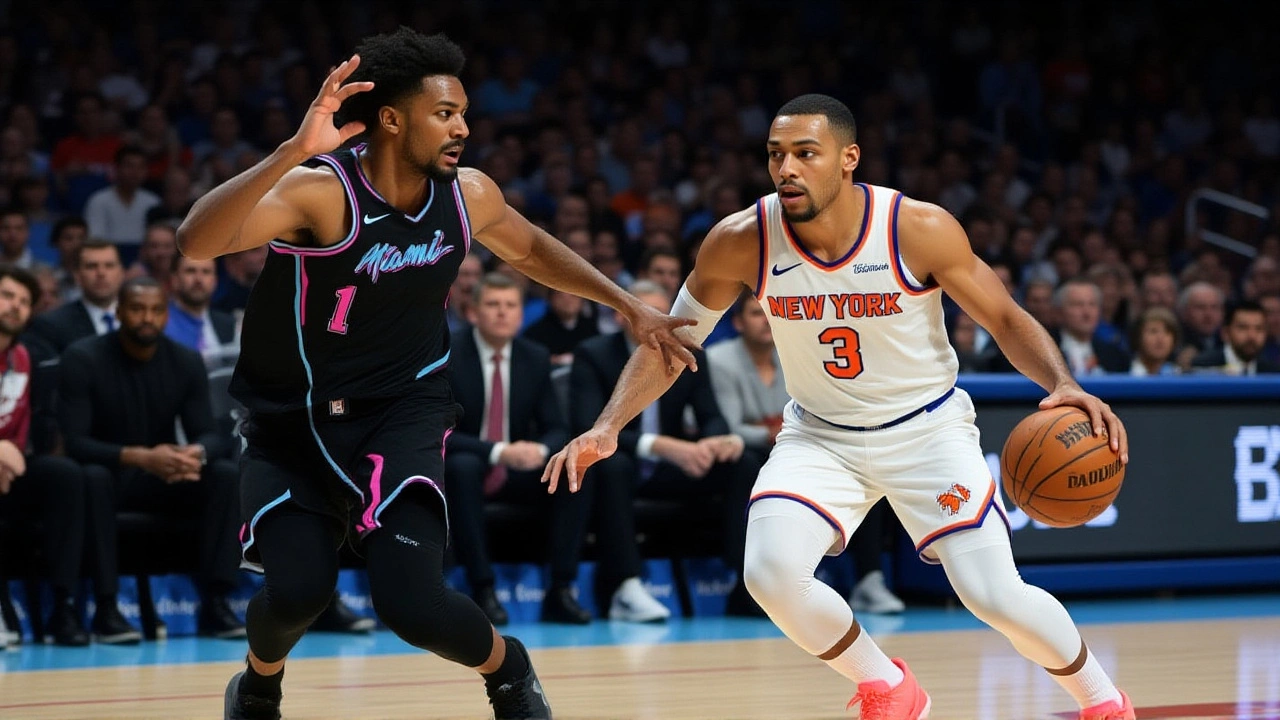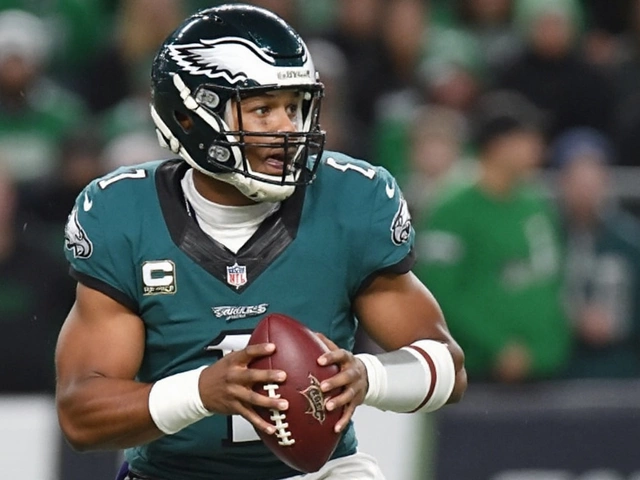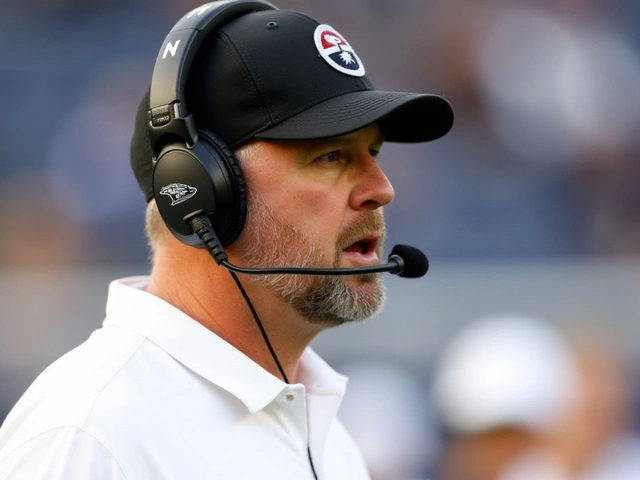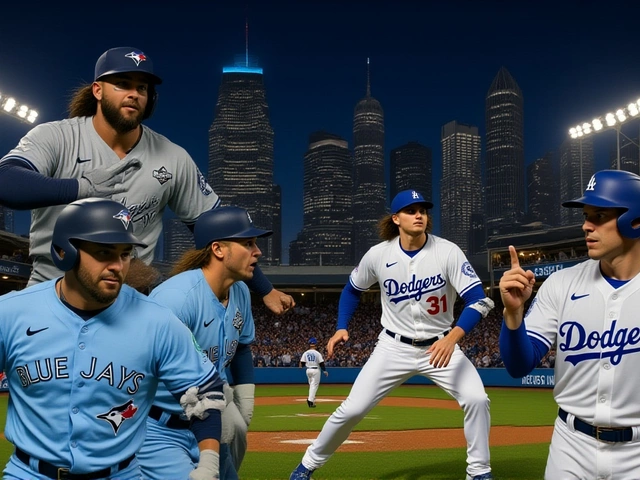The Miami Heat didn’t just beat the Chicago Bulls — they dismantled them. On Friday, November 21, 2025, at the United Center in Chicago, the Heat rolled to a 143-107 victory in an NBA Cup Eastern Conference Group C game, turning what was supposed to be a tight home contest into a statement performance. The win improved Miami to 10-6 overall and 2-1 in Cup play, while Chicago dropped to 8-7 and 1-2 in group play, slipping to fourth in the standings — a half-game behind New York. But the scoreline barely tells the story. This was an offensive wildfire, a historic eruption of scoring that left fans stunned and bettors quietly cashing in.
From 18-11 to 53-21: The Turnaround That Broke Chicago
The Bulls started hot. Ayo Dosunmu, sharp as ever, drilled jumpers and drove with purpose, helping Chicago race out to an 18-11 lead in the first five and a half minutes. It felt like the home crowd might get their win — especially with public betting leaning 58% toward Chicago. But then, something shifted. Miami didn’t just respond. They detonated.
Over the next 6:50 of the second quarter, the Heat went on a 20-5 run that turned a 10-point game into a 25-point lead. By halftime, the score was 75-50. Then came the 53-21 scoring burst across the first half — the kind of offensive avalanche that only happens when every player is in rhythm, every shot finds net, and the defense can’t get a stop. The Bulls, who entered the game averaging 118.4 points per contest, looked lost. Their offensive sets broke down. Passes went astray. Shots clanged off the rim like tin cans.
Kel'el Ware: The Quiet Force Behind the Avalanche
While Norman Powell (19 points) and Bam Adebayo (18) provided the star power, it was rookie Kel'el Ware who stole the show. The 20-year-old center, a second-round pick last year, posted 20 points and 14 rebounds — including 7 offensive boards that kept Miami’s offense alive. He didn’t flashy. No poster dunks. No celebratory dances. Just relentless effort: contested putbacks, timely screens, and a defensive presence that altered three shots without fouling. His 14 rebounds were the most by a Heat rookie in a single game since 2018.
"He’s playing like he’s been here five years," said Heat coach Erik Spoelstra after the game. "He reads the game like a veteran. That’s not rookie luck. That’s preparation."
Chicago’s Collapse and the Huerter Ejection
The Bulls didn’t just lose — they unraveled. Josh Giddey nearly notched a triple-double with 19 points, 11 rebounds, and 9 assists, but it wasn’t enough. Jalen Smith added 14 points, and Dosunmu led all scorers with 23, but the team’s cohesion vanished after the first quarter. The turning point came in the third quarter when Kevin Huerter, frustrated after a foul call, waved his hand at the ball in protest. The ball bounced off his fingertips and struck referee Che Flores in the back of the leg. No malice. No intent. But the league’s rules are clear: any deliberate or reckless contact with an official results in ejection. Huerter was tossed, and the Bulls lost their last offensive spark.
"It was a reaction," said Bulls coach Billy Donovan. "He didn’t mean to hit him. But the rules are the rules. And that’s on us — we have to keep our composure. We let emotion take over."
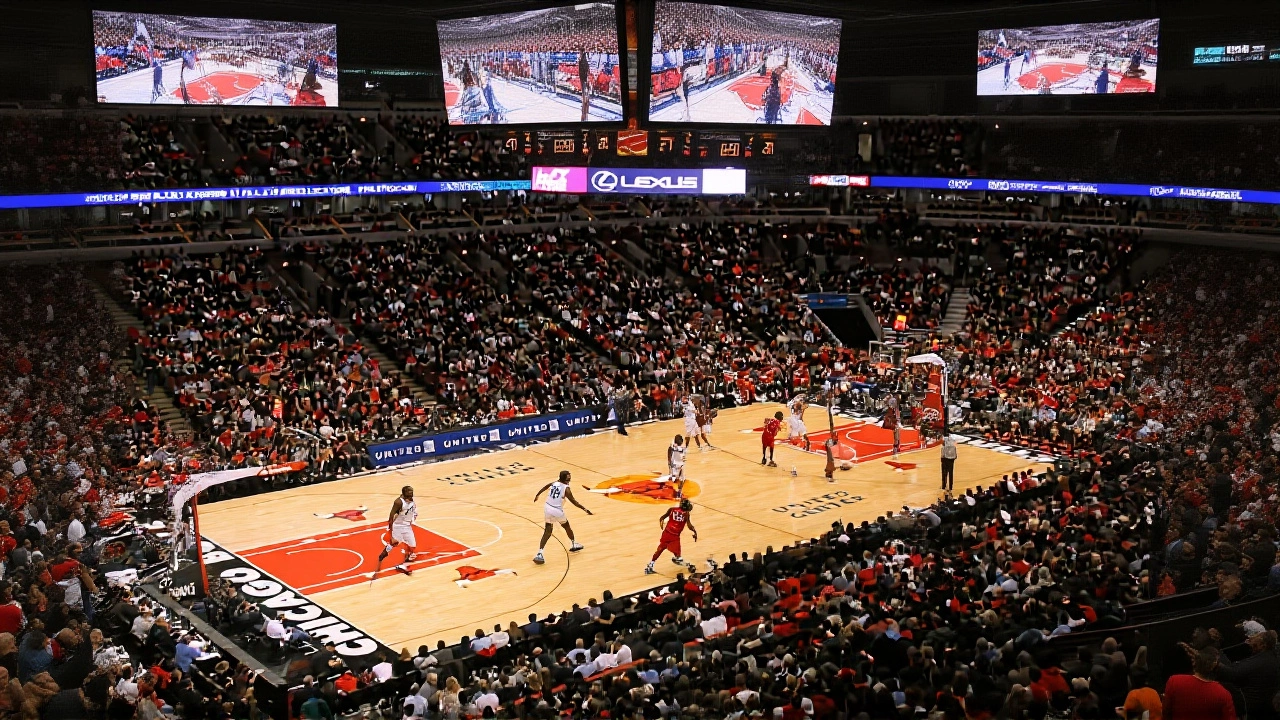
Historic Scoring, Betting Upset, and the Over/Under Twist
The Heat became the first team since the 1980s to score 140+ points in four games within their first 16 contests of a season — matching their total from the last seven seasons combined. They now average 124.8 points per game, the best in the NBA. They’ve scored 140+ four times this season. Last year? Zero times.
The betting world didn’t see it coming. Despite 58% of bets and 58% of money going to the Bulls, Chicago failed to cover the 2.5-point spread. The over/under was set at 250.5. The final score? 250. The under won. A rare twist in a game where both teams were trending OVER in their last five games.
"We had the Heat +2.5 and the under," said one Chicago-based bettor who spoke anonymously. "I thought I was getting greedy. Turns out, I was just right. I cashed out $420 on a $100 parlay. Still can’t believe it."
What This Means for Both Teams
For Miami, this isn’t just a win. It’s a signal. The Heat are no longer a playoff hopeful — they’re a title contender built on pace, spacing, and unselfish ball movement. They’ve got four players averaging over 16 points. Their bench outscored Chicago’s 48-23. They’re playing with a confidence that’s contagious.
For Chicago? This is a wake-up call. They’re 5-2 at home, but 3-5 on the road. They’re 2-3 in their last five games. Their defense has slipped to 22nd in the league. And now, with Huerter suspended for Sunday’s game against Charlotte, their depth is tested. They need to fix their transition defense — Miami scored 38 fast-break points — and stop letting games slip away after early leads.
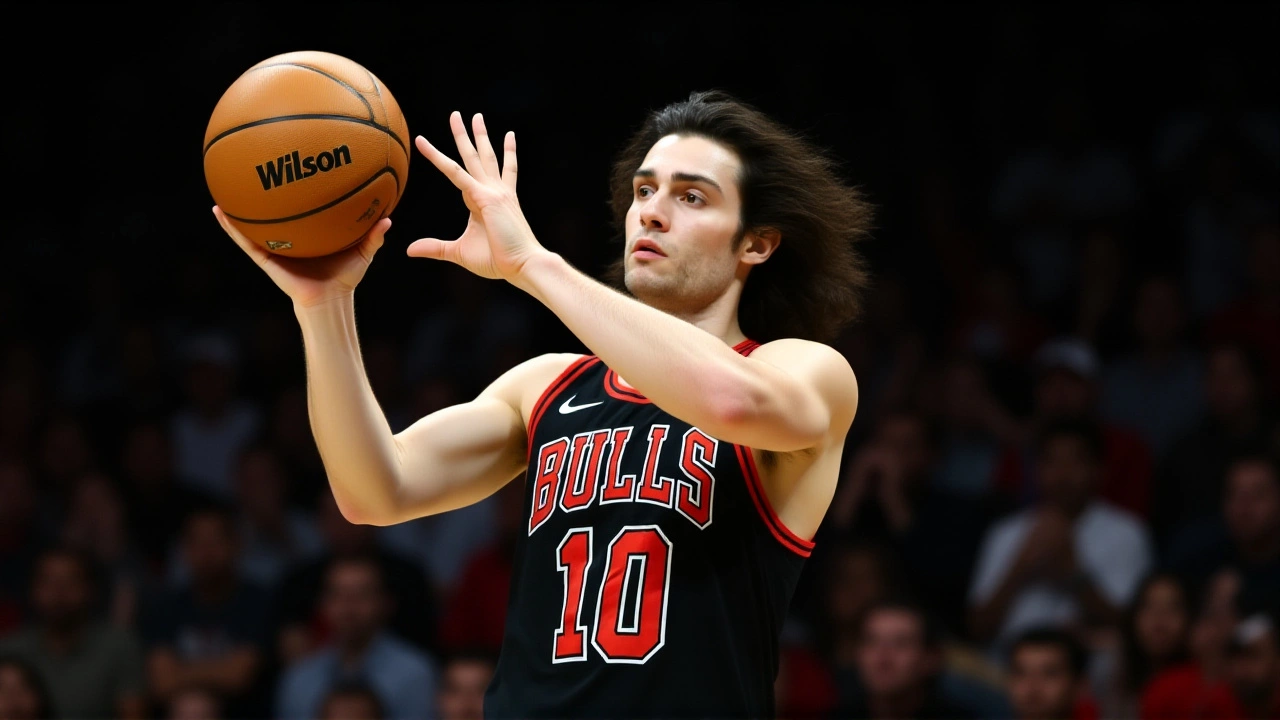
What’s Next?
The Heat travel to face the Orlando Magic on Sunday, still seeking their first road win in the NBA Cup. The Bulls host Charlotte — a must-win if they want to avoid elimination from Cup contention. With only two group games left, Chicago’s margin for error is gone.
Frequently Asked Questions
How did Kel'el Ware’s performance compare to other Heat rookies?
Ware’s 20-point, 14-rebound game is the best by a Heat rookie since Justise Winslow in 2016, and his 14 rebounds are the most by a Miami rookie since 2018. He’s the first Heat rookie to record 20+ points and 14+ rebounds in a game since Chris Bosh in 2004. His efficiency — 9-of-12 from the field — also stands out, showing he’s not just a volume scorer but a high-percentage finisher.
Why did the Heat score so many points this season compared to last year?
Miami’s offensive explosion stems from three factors: increased pace (they’re playing at the 3rd-fastest tempo in the league), better three-point shooting (41.2% from deep, up from 35.8% last year), and deeper ball movement. They’ve had 10+ assists in 13 of their 16 games, and 12 players have scored in double figures this season. It’s not about one star — it’s a system.
What impact does Huerter’s ejection have on Chicago’s playoff chances?
Huerter’s suspension for Sunday’s game against Charlotte removes Chicago’s most reliable perimeter shooter (44.7% from three) and a key defensive switch. With DeMar DeRozan still recovering from a calf strain, the Bulls are thin on wing depth. If they lose to Charlotte, they’re eliminated from Cup contention — and that could affect their seeding in the regular-season playoffs.
Why did the under win when both teams were trending OVER?
The Bulls’ offense stalled after the first half, and Miami pulled back in the fourth quarter, going 7-of-22 from the field with 10 turnovers. The Heat didn’t need to score more — they just needed to hold the lead. The final score of 250 was just 0.5 points below the over/under, making it one of the closest under wins in NBA history. It’s a reminder that momentum doesn’t always translate to scoring — defense and tempo matter more than trends.
How does this game affect Miami’s NBA Cup standings?
With the win, Miami moves to 2-1 in the NBA Cup’s Eastern Conference Group C, tying with New York for first place. A win in their next game against Orlando locks them into the Cup semifinals. They’re now the only team in the conference with a winning record in Cup play and a top-3 offense. The Heat are the favorites to win the Cup — and this game proved they’re capable of dominating even on the road.
Is this the beginning of a new Heat dynasty?
Not yet — but it’s the clearest sign they’re rebuilding into something dangerous. With Adebayo, Powell, and now Ware forming a core that blends experience, shooting, and athleticism, Miami has the pieces. They’re not just winning — they’re playing with a style that’s hard to defend. If they stay healthy and keep their turnover rate low, they’re a legitimate threat to reach the Finals for the first time since 2020.
